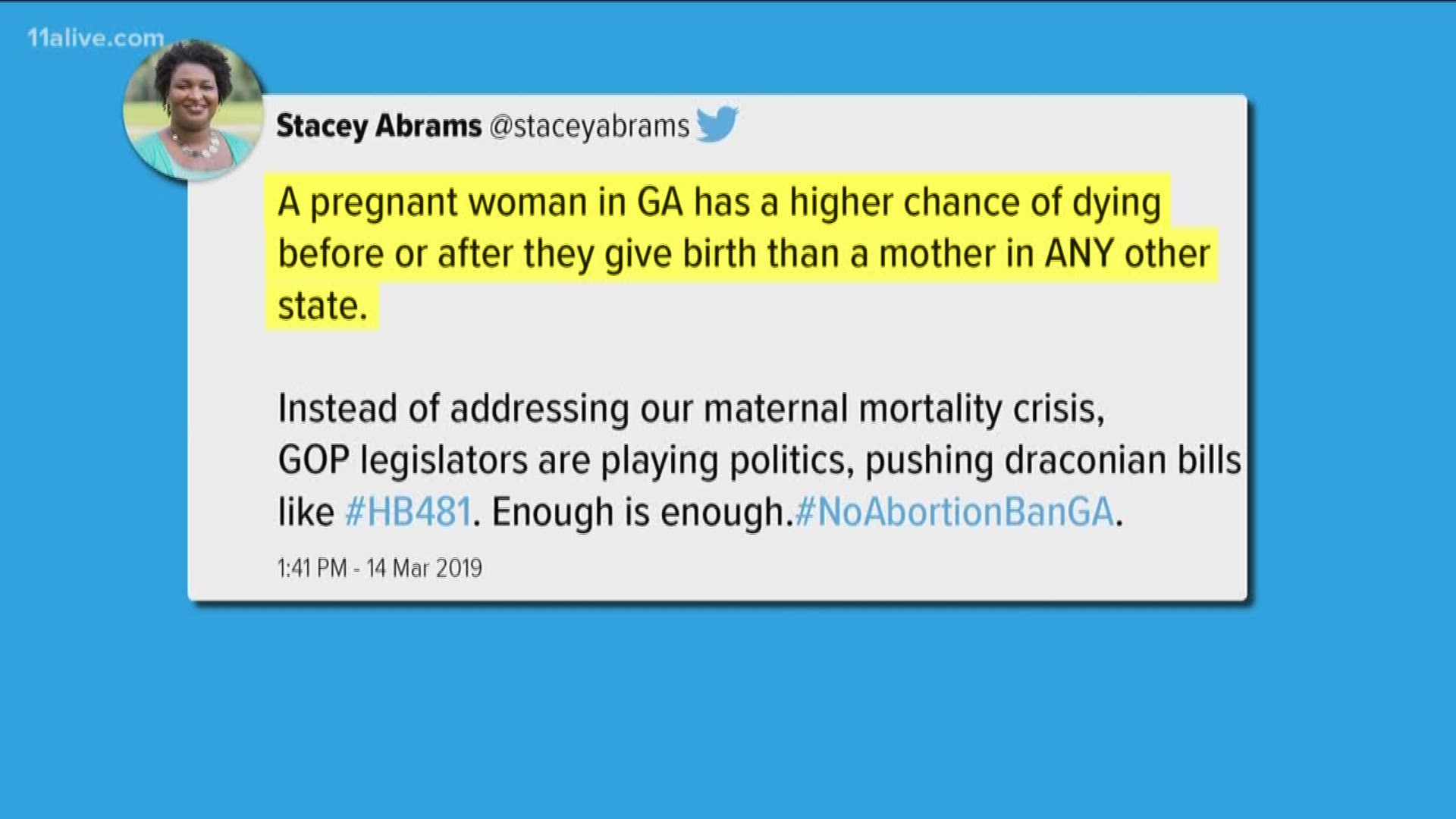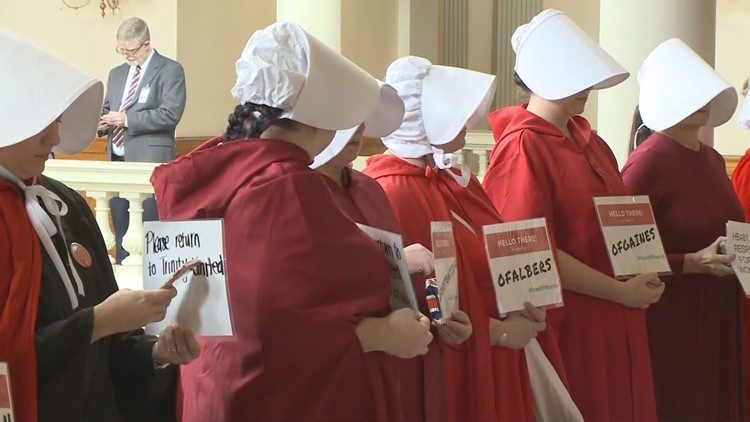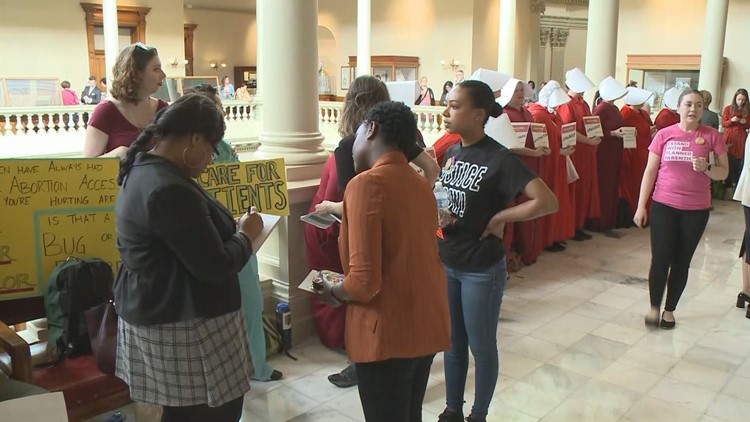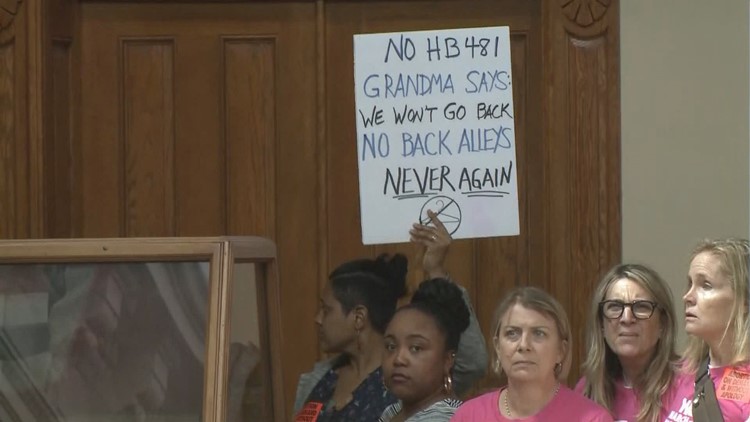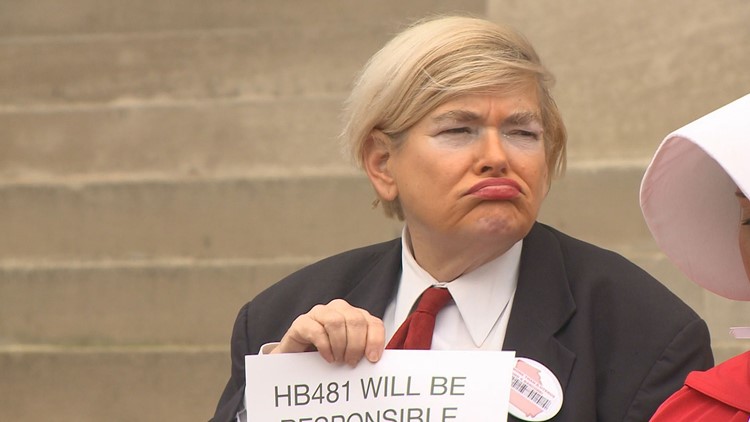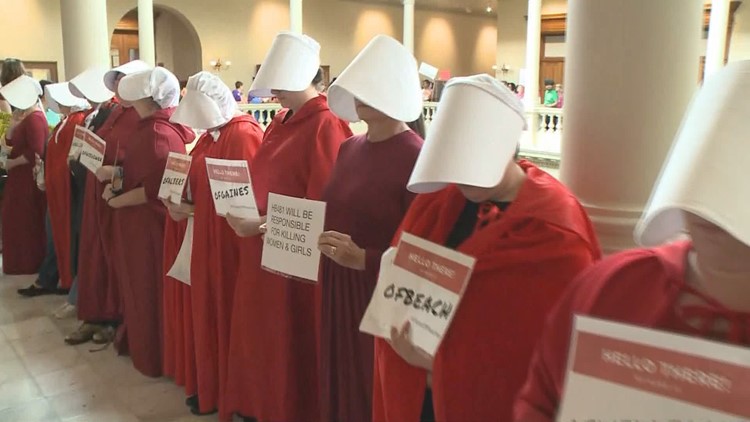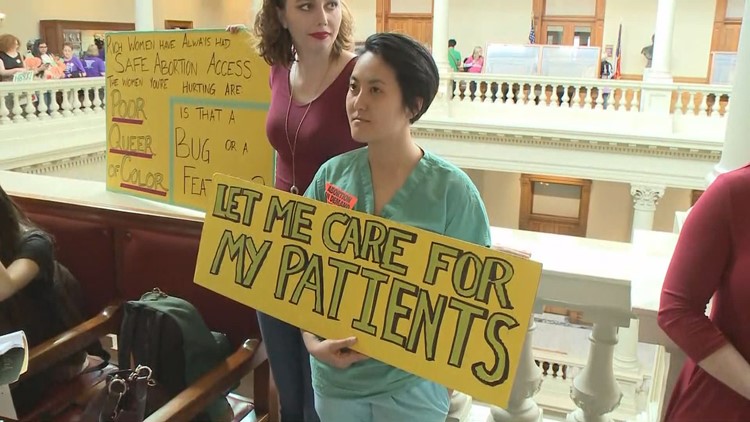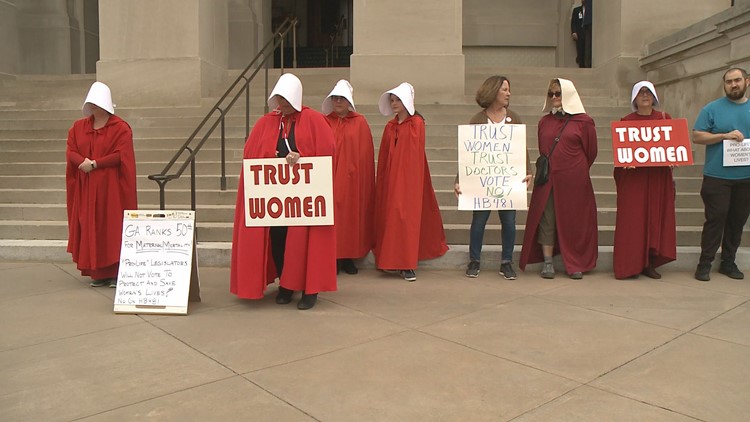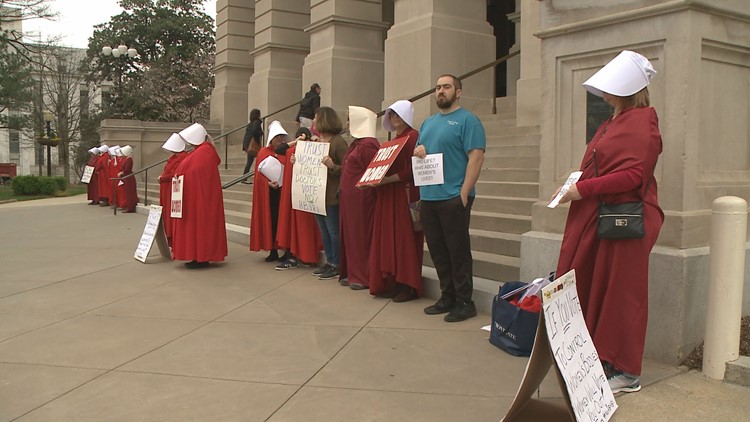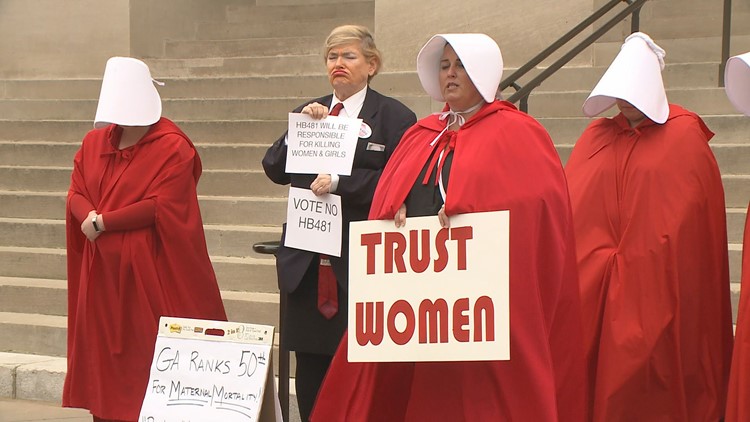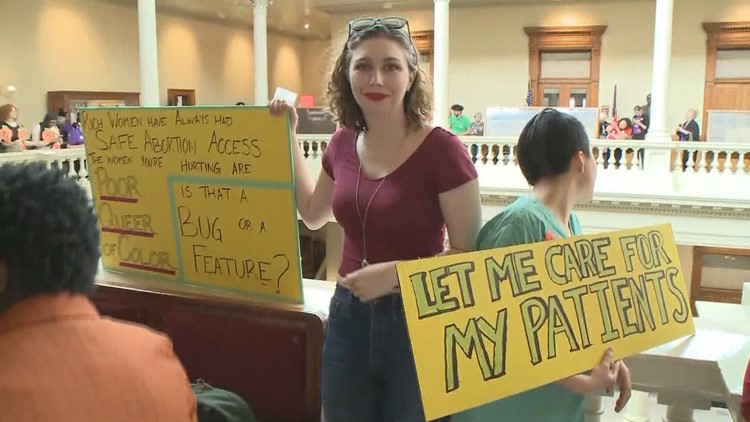Stacey Abrams, Georgia's former Democratic candidate for governor, is weighing in on the highly-contested "heartbeat bill."
A Senate committee is poised to vote on the bill - which has already cleared the House - Thursday night, and Governor Brian Kemp has urged its passage. It was expected to be voted on Thursday night, ended up not happening.
Legal abortion is currently allowed up to 20 weeks. This measure would reduce it to about six weeks - the time a fetal heartbeat becomes present and sometimes even before a woman realizes she's pregnant.
Abrams, who is finding a national platform and is entertaining a run for the Senate or possibly U.S. President in 2020, weighed in on the debate on Twitter as public comment for the "heartbeat bill" was underway at the Georgia State Capitol.
"A pregnant woman in GA has a higher chance of dying before or after they give birth than a mother in ANY other state. Instead of addressing our maternal mortality crisis, GOP legislators are playing politics, pushing draconian bills like #HB481. Enough is enough.#NoAbortionBanGA," she tweeted.
MOTHERS MATTER: Black mothers are dying during childbirth
Outside the Capitol, more than a dozen women held vigil against the bill, waving signs and some wearing costumes from "The Handmaids Tale," a dystopian work of fiction about women forced to submit to men and give birth.
Protesters against 'heartbeat bill' fill Georgia Capitol building
In reaction to passage of HB 481, several female Democratic representatives have introduced their own measures that would target men's sexual health, including a measure that would make it a requirement for men over 55 years old report to law enforcement any time a release of sperm is made.
Two other measures would create an all-female panel to study erectile dysfunction and remove Viagra from being state-funded.
While those measures have a slim chance of passage, many of the representatives who've proposed them said they are meant to point out the double standard when it comes to legislating women's health.

